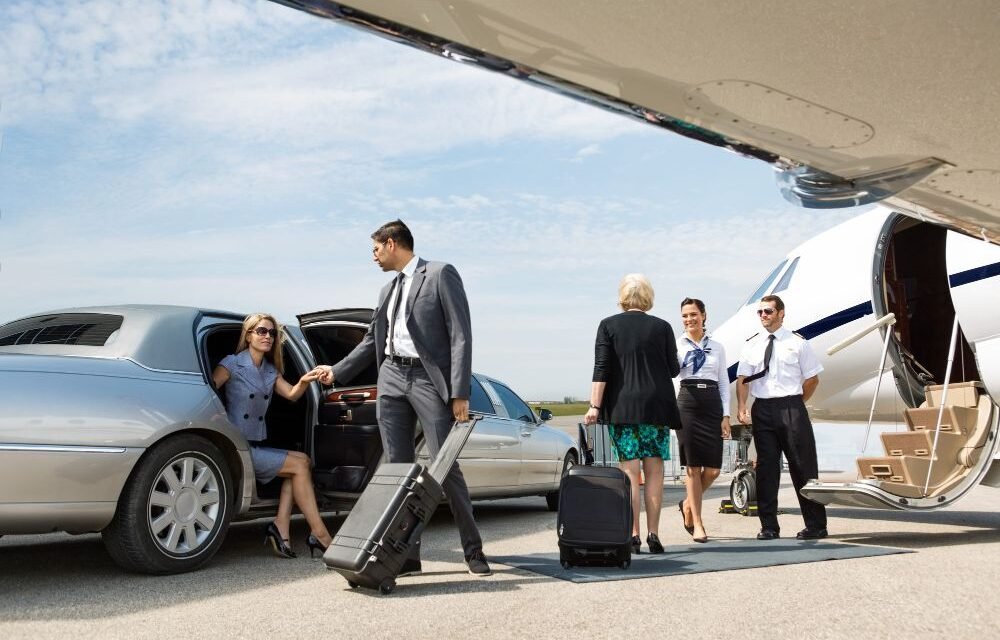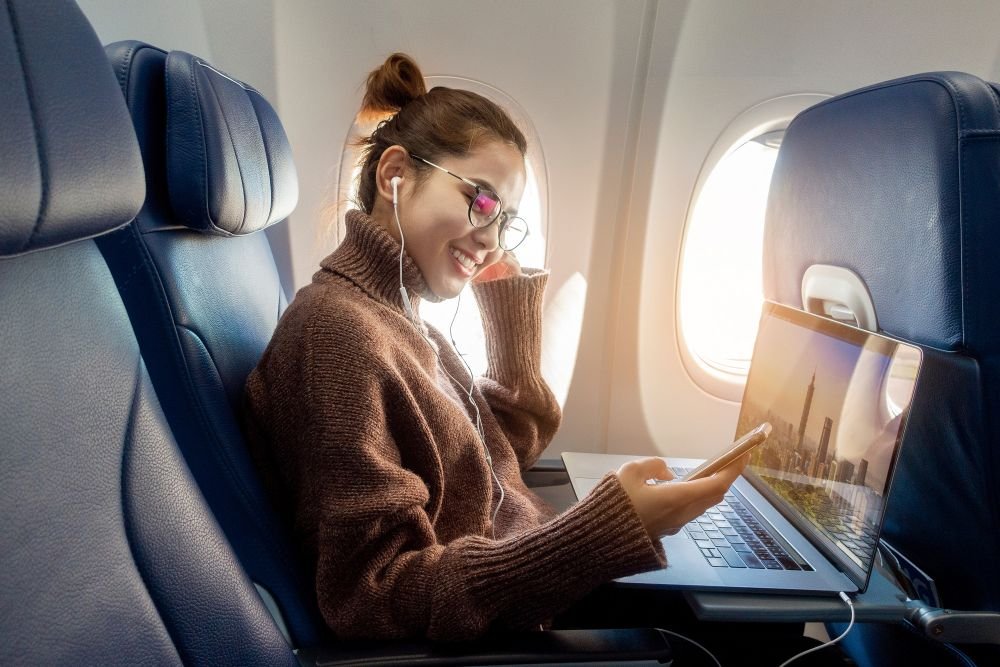
The Future Of Corporate Travel: Trends And Predictions

In 2021, the number of both inbound and domestic corporate trips in the United States was around 251 million. According to Statista, corporate travel is overgrowing in many emerging markets and is expected to increase by 188% in the next five years. And even with technological advancements, companies still value the importance of in-person interactions.

Trend 1: Use Of Online Booking Tools
Self-booking or online booking tools are some of the most popular ways companies manage corporate travel today. Through this, travelers will be able to choose flight schedules according to their preferences.
Some essentials to look out for when selecting an online booking tool include the following:
- 24/7 accessibility backed by an agent
- Low fees
- Easy customization, such as allowing changes or the budget
- Secure, convenient, and easy payment options
These tools can help to cut costs and considering the services of an all-in-one travel software solution like TravelBank or others can be beneficial. Services like these can help streamline your planning and traveling process, making it quick and efficient.
Trend 2: The Rise In Bleisure Travel
Historically, business travel meant a two- or three-day conference. However, a new trend called ‘bleisure’ travel is emerging, allowing people to combine business and leisure travel. This trend is slowly taking over the industry, and over time it’ll bring a significant transformation to work.
With this trend, workers can now get a chance to add more days, a week, or even a month to the agreed days of a business trip. The aim of doing this is to spend time getting familiar with and exploring their destination beyond corporate events, job sites, and conference rooms.
Bleisure travel is also essential in helping your team members recover physically and mentally, which impacts their productivity at work. It’s also an opportunity for them to meet new people and expand their network. Furthermore, they may add value to your company as profitable investors or business partners.

Trend 3: Unconventional Stay Options
Another corporate travel trend that’s likely to be the norm for new-generation travelers is unconventional accommodation. Over time, corporate travelers are preferring to stay in other styles of accommodation than traditional hotels. Ideally, they prefer home-like accommodation options like small-boutique hotels, vacation homes, rental apartments, tiny homes, and condo rentals.
Apart from the comfort of home, other reasons why unconventional accommodation is a viable option include the following:
- Increased traveler satisfaction
- Cost saving
- Traveling with a team is easier
Non-convectional accommodation options are also in convenient locations, unlike many traditional hotel rooms.
Trend 4: Technological Changes
With technological advancements, corporate travel has significantly changed. Apart from using online platforms and apps to book trips, some of the changes are as follows:
- Artificial intelligence (AI) tools: AI tools like facial recognition can help speed up border control and immigration processes, reducing traveler’s waiting time.
- High-speed internet access: This allows people to continue working during long trips.
- Retinal and fingerprint scanning: This helps in confirming the travelers’ identity in airports and travel stations.
- Contactless payment: This offers quicker transactions.
- Airline apps: This helps travelers monitor their flight’s status and get notified in case of delays.
- Virtual reality (VR) technology: This adds more personalization to the traveler’s needs. For instance, they can choose the room of their choice.
Technology has caused many positive changes, even in corporate travel processes. With these advancements, travelers can now enjoy seamless and automated check-ins and check-outs.

Trend 5: Blockchain Technology
Blockchain is a decentralized, encrypted database shared across a network of stakeholders. Here, you can store and organize your digital transactions and data, making them transparent and secure. The information added to the blockchain has to be validated by consensus and accepted by all parties rather than one central administration. This helps reduce errors because blocks added to the blockchain can never be removed or modified.
Some of the impacts of this technology on corporate travel include the following:
- Streamlining payments: Helps in making settlements between different parties like hotels, travel agencies, and aggregators.
- Traveler identification (ID) verification: Travelers are usually required to show their ID at multiple stages of their journey, from booking to boarding to checking in a hotel. Blockchain can simplify the traveler identification process and secure it at every step.
- Accurate baggage tracking: One of the biggest challenges traveler experience is keeping track of their baggage. Blockchain allows an easy exchange of information even if the workers are in different airlines or related to the same segment. This improves the efficiency of tracking baggage across the industry.
- Collecting of information: Blockchain technology makes it easy for the corporate traveler to collect travel-related information like hotel and air ticket rates.
With blockchain technology, there’s a high probability that travel companies will soon start accepting cryptocurrencies as payment.
Trend 6: Corporate Travel As A Perk
As earlier highlighted, corporate travel adds value to a business. There’s a high likelihood that more companies and team members will view corporate travel as a perk. This is because it allows them to achieve the following:
- Boost their confidence
- Interact with other people
- Meet new prospects and potential clients
- Retain employees
- Close sales deals
- Strengthen clients’ relationships
As time goes by, many international travelers recognize corporate travel’s importance in helping boost personal and professional growth. The other realization is that, as much as virtual meetings are necessary, face-to-face meetings are more effective. Harvard Business Review reported that in-person interactions and meetings are 34 times more likely to get positive feedback than virtual ones.
More employees are willing to go on corporate travels to gain an enriching experience and become more empowered. This enthusiasm is likely to increase and become even more in the future.
Hence, the management should check the company’s policies and improve those unfavorable for the workers. Remember that employees may want to know what is expected of them and how to comply with corporate travel policies. This is as long as the guidelines are fair and allow them to fulfill all they need.
Dynamic corporate travel policies will be a common trend in the long run. Thus, your employees can make choices that align with their needs, tastes, and preferences. This will not only build trust between employees and employers, but it’ll also encourage a transparent culture.
Travel 7: Safety Will Be A Major Priority In Corporate Travel
The health and safety of corporate travelers have always been crucial. But there’s a likelihood that there’ll be an increase in the prioritization of these factors in the long run. Managers will be more concerned about their team members’ mental and physical health as they make travel trips.
Below are some tips you may consider using to mitigate travel risks. This includes the following:
- Assess the risks and research their destination to determine whether they’ll be experiencing problems like adverse weather or civil unrest.
- Train employees to know how to contact their corporate travel agency, their travel manager, or local emergency services to request help in case they’re in danger.
- Keep travelers healthy by sharing information on medical support abroad and researching food and water safety as well as health threats and diseases. This may also include some mandatory vaccinations.
- Encourage employees to stay tuned with their security by checking the country’s background to confirm the types of crime that happen, crime rate, and other security risks. Moreover, most companies will be willing to offer security training.
The aim of adopting all the above strategies is to enhance the safety of corporate travelers.
Trend 8: The Emergence Of New Travel Markets
Countries like Indonesia and India are beginning to spend more on business travel. These countries have exhibited an 8.7% and 11.3% increase in market growth, respectively. This is due to the increase in corporate travelers going to those countries.
Before 2022, other countries that have shown immense market growth are Norway and Sweden, whose growth rates are 6.8 % and 6.6%, respectively. This indicates that over time, there will be an expansion of travel markets to cater corporate travelers.
Corporate travel is essential for businesses and is slowly revolutionizing. For example, employees want flexibility and book their trips and accommodation themselves. With most online booking tools, you can customize your corporate travel policies. This makes the process relatively seamless for your team members.



































